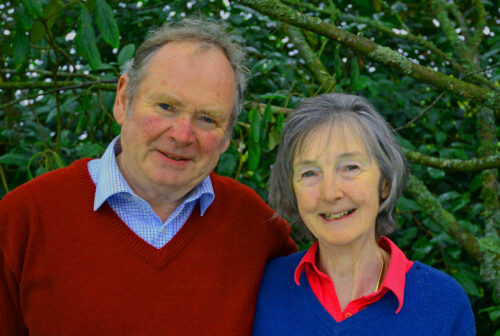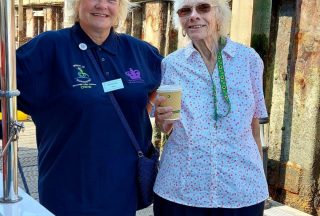A dementia diagnosis can be incredibly difficult to receive, but there is a lot of specialist support out there to help families to adjust to the changes it can bring.
A lot of this advice and support, from organisations such as Alzheimer’s Support, will be useful to people universally. However, some groups of people will face unique challenges when someone close to them is diagnosed with dementia or a memory related condition.
One of these groups is the farming community. For those working in farming and living in rural communities, a dementia diagnosis can have a significant impact on the ability to farm successfully and safely. For many farmers, their work is also their home and there’s no option to take some time off. In addition, when living in rural communities there may be an increased risk of isolation as there are fewer people in physical proximity.
Jennifer is a farmer’s wife whose husband developed dementia. She has been working with the Farming Community Network (FCN) to reach other carers in similar positions with some of the information and support she found most helpful when she started caring.
Jennifer and her husband were cherry tomato growers on a small farm. He had always run the farm, the accounts and all the negotiations with supermarkets while Jennifer was tomato-planter, cook and bottle-washer.
It was some time after Jennifer and her children started to notice a decline in her husband’s mental health that he agreed to see a GP. During that time Jennifer says: “The farm buildings and fences around our 30-acre farm were doing what farm buildings and fences do: they gently collapse and fall down.”
Jennifer refers to this time as the ‘silent gap’. She says it is the last and most valuable opportunity to gather knowledge – both from the person who has dementia, about things only they know about – passwords, contacts, where keys are kept and so on – and from books, training courses and other sources that can give the carer the knowledge they need about dementia.

Jennifer pictured with her husband Patrick
Jennifer says: “By the time we got medical help it was too late for the rusting barn, the water leaks and the spinning water meter, the hanging gutters and the lights that didn’t work, and only just in time to get a Power of Attorney signed.”
She adds: “I found I had two patients: my husband, and the farm. I desperately needed to find out specifically how to respond to him in his new persona, while keeping him happy and loved. And, at the same time, the farm was now falling apart with buildings needing repair. Which farm crisis to deal with first?”
Three books are recommended by Jennifer for those who have someone with dementia in their lives. The books are:
- Contented Dementia, by Dr Oliver James
- If Only I’d Known That, by Susan Hartnell-Beavis
- Compassion with Dementia, by Hilary Cragg.
Jennifer has put together a very helpful booklet in association with the Farming Community Network containing a wealth of information particularly useful for those who are part of a farming family or live rurally; but equally it has lots of helpful advice for anyone who is starting out supporting someone with dementia. The booklet is called Angels in Gumboots and you can read it here. If you would like a printed version of the booklet posted to you, contact the FCN helpline on 03000 111 999 or email help@fcn.org.uk.
The Farming Community Network is a voluntary organisation and charity that supports farmers and can help if you are struggling with the upkeep and management of your farm. Its volunteers understand the pressures of running a farm and can talk to you about options, help you to prioritise what needs to be done and will listen to you and provide an empathic voice at challenging times.
If any of these issues affect you, you can also contact us on our helpline number 0800 368 8349 or email admin@carersupportdorset.co.uk. Our team will be happy to talk through your situation and signpost you to the best support available for you.



